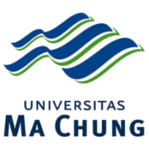
KLAUSA in volume 2 no 1 year 2018 presents several authors with brilliant ideas to look into. Patrisius Djiwandono presents the results of his research on authentic material and vocabulary profilers to improve students' vocabulary skills. He mentions that both authentic materials and blended learning approaches help language instructors motivate their students to practice vocabulary. However, Djiwandono reminds us that the most important of all is to give a lot of practices to students and let them get used to using new intakes regardless of approaches teachers might use. Lilis Lestari Wilujeng and Shanty Arysaputri highlight the dynamics of the translation model by John H. McGlynn when translating the literary works of Sapardi Djoko Damono's poetry from Indonesian into English. From the translated work, we can learn how skillful McGlynn is when managing his deep structures as an English native speaker to transfer the soul of the poems into concrete beautiful performance. Even though McGlynn has sometimes broken the walls of the theme, tone, and mood walls, the translation is still able to represent Damono's original soul with a concise, beautiful and elegant style and structure. In the third article, Yusri Fajar presents an analysis of the life of Murad, a character in Arafat Nur's novel entitled Surga Tanah Merah (Red Soil Paradise). On the one hand, Murad is someone who is celebrated as a hero because he is considered fighting for Aceh's independence from the occupation of the Indonesian central government. However, in the novel, Murad has also become a fugitive from the central government and the Acehnese government. Arafat Nur’s novel offers criticism for Aceh which is accompanied by hopes for the history and peace. In the last research article, entitled “Pola Kalimat Bahasa Indonesia Tulis Pembelajar Bipa Tingkat Pemula Asal Tiongkok di Universitas Ma Chung Tahun 2018,” Yohanna Nirmalasari presents the result of her observation on Chinese students taking a semester in Malang, Indonesia. As beginner learners, the Chinese students have two sentence models, namely, sentences with clauses and those of non-clauses. KLAUSA ends with a book review by Aditya Nirwana that invites readers to reflect back on Aristotle's thoughts through Poetics. In his review, Nirwana elaborates Poetics by comparing the thoughts of Plato and Aristotle about art: Praxeos (Aristotle) Mimesis and Platonic Mimesis (Platon).
Articles
-
DOI : https://doi.org/10.33479/klausa.v2i01.145
 Abstract View: 210,
Abstract View: 210,  PDF (Bahasa Indonesia) Download: 402
PDF (Bahasa Indonesia) Download: 402
-
DOI : https://doi.org/10.33479/klausa.v2i01.142
 Abstract View: 518,
Abstract View: 518,  PDF (Bahasa Indonesia) Download: 3232
PDF (Bahasa Indonesia) Download: 3232
Review
-
DOI : https://doi.org/10.33479/klausa.v2i01.147
 Abstract View: 1774,
Abstract View: 1774,  PDF (Bahasa Indonesia) Download: 1879
PDF (Bahasa Indonesia) Download: 1879
















